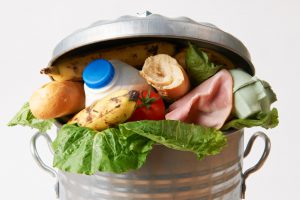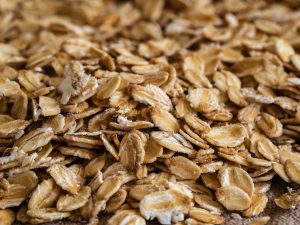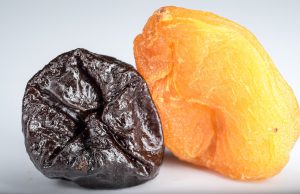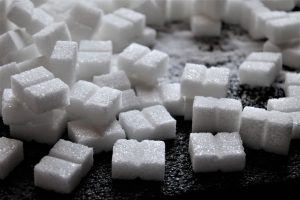Everybody’s got them: those packaged foods lurking in your kitchen. You see them every time you open your fridge or cabinet door, and you wonder whether it’s ok to keep them and use them up, or whether you should just give in and chuck them. They’ve got dates stamped on them, but, confusingly, they all say different things, like “use by,” “sell by”, or “best by,” so you’re not completely sure whether they’re still considered “safe” to eat. Well, while safety should come first, if your first instinct is to get rid of anything that’s even slightly past these dates, you could be wasting perfectly good food! And you’re not alone: food waste is a huge problem in our country, and the problem is only getting worse. So what do those labels actually mean, should you pay attention to them, and how can you stock your pantry with foods that are almost impossible to waste?
What Do Expiration Dates Have to Do with Food Waste?
Over the past year and half, we’ve been (rightly) focused on food insecurity in America: 54 million people were considered “food insecure” in the U.S. in 2020, up from 37% the year before. Yet, at the same time that many are suffering from lack of food, we’re also wasting a crazy amount of food every day in the U.S. Maybe you knew about the jump in food insecurity, but did you know that we waste approximately 1 pound of food per person in the U.S. every day, which equates to over 80 billion pounds of food, or 30-40% of our food supply? Not only that, but the third of all food that we voluntarily throw away adds up to $160 billion annually, with the average family of four basically putting $1500 each year into the trash.

All of this makes the U.S. the worldwide leader in food waste generation; it also means that food waste accounts for 24% of all solid waste in landfills. And, as food rots in a landfill, it emits methane, a greenhouse gas 28 to 36 times more potent than the carbon that comes out of passenger vehicles.
Maybe you’re thinking, “Well, that’s terrible, but what does this have to do with the ‘best by’ date on my bottle of ketchup or the ‘sell by’ date on a carton of milk? To answer that, you need to know that those “sell by,” “best by/before,” and “use by” stamps are not federally regulated – and not only that, but they actually have nothing to do with food safety. That means, if you’re sticking religiously to those dates, and getting rid of food the moment it “expires,” you’re most likely throwing out perfectly good food.
On its website, the USDA’s Food Safety and Inspection Service (FSIS) takes great pains to point this out: “In an effort to reduce food waste, it is important that consumers understand that the dates applied to food are for quality and not for safety. Food products are safe to consume past the date on the label, and regardless of the date, consumers should evaluate the quality of the food product prior to its consumption.” In other words, you need to be the judge when it comes to food spoilage, and while expiration dates are a useful guide for whether something might be stale or not at peak flavor, they shouldn’t dictate when you toss your food into the garbage.
What Do Use By/Sell By/Best By Actually Mean?
So what do “use by,” “sell by,” and “best by” actually mean, then? The FSIS does not regulate the dates stamped on your food, but they do give a description of these labels:
- Use by – This is the last recommended date for peak quality of your food item, but it is not an indication of food safety. The only exception to this is for infant formula, which you shouldn’t use after this date.
- Sell by – A sell-by date on a product actually doesn’t have much to do with the consumer: this date is meant to tell a store how long to display it for inventory management purposes. Again, it is not meant for food safety purposes.
- Best if used by/Best Before – The word “best” here is the dead giveaway that this date has nothing to do with food safety: this date simply indicates when a product will be of best quality or flavor.
Remember, your nose always knows: if it doesn’t pass the sniff test (or the taste or texture test), you should throw it out. Bad bacteria will cause off odors or funky tastes and textures, so pay attention to those things; otherwise, if you’re throwing out a box of crackers or a sealed jar of mustard simply because it’s past its sell-by date, you’re really just throwing away money and adding more waste to our already overfilled landfills.
Foods That Go the Distance
All of the above being said, the quality of some foods does deteriorate after a certain amount of time. So yeah, maybe those crackers are a little stale, and fresh foods won’t last for too long…but there are things you can stock your pantry with that will almost never go bad, despite what it says on the label. 
- Oats – This nutritional powerhouse of a grain will last for 2-3 years unopened or resealed in the pantry, so keep some on hand for a filling, wholesome breakfast, or consider grinding oats in the blender and using it as a wheat flour alternative!
- Chia seeds – These teeny tiny black wonders contain all nine essential amino acids and are also a potent source of fiber and ALAs, a type of omega-3s that can decrease the risk of heart disease. When stored in an airtight container in the fridge, they remain tasty and safe to eat for up to a year.
- Soy sauce – Keep this on hand and you’ll always be ready for your sushi nights: unopened bottles will last basically forever, and opened ones will last for 2-3 years in the fridge.
- Mustard – It’s BBQ season, so bust out the mustard – and don’t worry, unopened jars will last for about 3 years, and even opened, refrigerated mustard will last at least a year, sometimes 2, depending on the variety.
- Maple syrup – This sweetener is not only perfect for pancakes, it’s a great way to replace refined sugar in your baked goods, as it has a low glycemic index. And it will last forever in the fridge or freezer!
- Canned coconut milk – Keep this on hand for baking and curries – it’ll last for up to 2 years in your pantry.
- Virgin coconut oil – Skip the refined or expeller pressed versions of this oil – the virgin type will last forever in your pantry!
- Canned tomatoes – This versatile staple (think soups, stews, and sauces) will expire eventually, but you’ve got about 2 years for unopened cans, so channel your inner Italian grandma and get cooking!

- Dried fruit – Yes, you should get that monster bag of your favorite dried fruit at Costco – it’ll last for 1 – 2 years. Here’s a tip: pop your dried fruit in the freezer to keep it at its tastiest, and defrost when you’re ready for it.
- Rice – Store any variety of rice in an airtight container and you’ll have a side dish for years to come.
- Popcorn kernels – This snack offers great bang for your buck – you can eat a few cups of air popped popcorn as opposed to a much smaller portion of chips or pretzels. Plus, popcorn kernels will last indefinitely in an airtight container, and will pop even better if you keep them in the fridge.
- Canned tuna – Any low-acid canned goods, like tuna, but also other fish, meats and veggies, will stay fresh for up to 5 years, so you’ll always have something to slap together for a quick lunch. When should you definitely toss out a can of anything? If it’s bulging or leaking.
- Dried beans – These are excellent pantry staples: they are chock full of fiber and nutrients, and will keep for a year if stored in an airtight container in a cool, dry place out of direct sunlight.
- Salt – Sea salt and kosher salt will last forever as long as you keep the moisture out, but iodized salt has a shelf life of around 5 years (still not bad!).
- Olives – Unopened olives can last for up to 3 years, so stock up on this briny delicacy – you’ll always be ready to jazz up salads and hand out martinis to your guests!
- Honey – This sweetener, with its antibacterial properties never goes bad – in fact, honey has been found in ancient tombs and scientists claim it’s still edible (but I think we’ll take their word for it). And when it begins to crystalize and darken? Still good! Just warm up some water, pop the jar or bottle in, and it will turn back to runny sticky honey.
- Jarred marinara sauce – Need a quick dinner? Have jarred sauces on hand: they last for up to 3 years unopened!

- Sugar – Don’t worry if you don’t eat a ton of this stuff (it’s probably better for you, anyway!): it’ll never go bad! Just remember to store it in an airtight container to keep away pests and moisture.
- Dried pasta – Need something to pour your jarred sauce over? Dry pasta will stay fresh in your pantry for at least a year, if not 2.
- Powdered milk – Because there’s no moisture in it, powdered milk will stay good for a whopping 10 years if it’s unopened (and will still last for a few years if opened). So even if you don’t use it regularly, it might be a good idea to keep around for emergencies.
Food waste is a problem, both financially and environmentally – and those expiration dates stamped on the food you buy really aren’t helping. But if you treat them as just a guide for best quality, and use your own senses (including common sense!) to decide whether to keep something or chuck it, you could end up saving money and keeping extra trash out of landfills. In addition, you can stock your pantry with some of the above items, and always have staples on hand that will most likely never go to waste!
